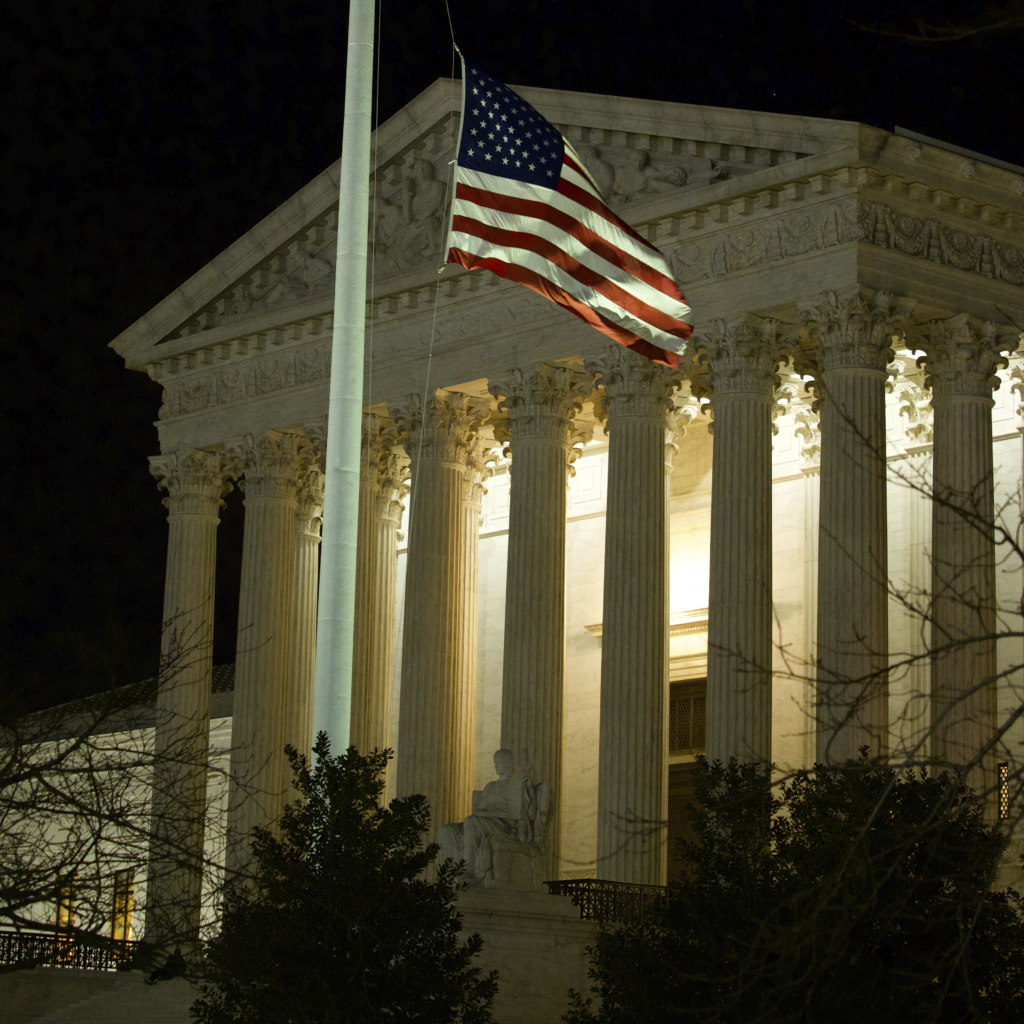Four of the nation’s foremost political operatives — all veterans of several congressional fights — convened Wednesday night to discuss the ongoing battle in the Senate over whether to confirm Supreme Court nominee Judge Amy Coney Barrett.
The Georgetown Institute for Politics and Public Service discussion featured four political strategists: Democrats Stephanie Cutter and Brian Fallon and Republicans Antonia Ferrier and Ron Bonjean. Cutter advocated for the nomination of Judge Merrick Garland in 2016, while Bonjean was a communications strategist for Justice Neil Gorsuch’s nomination the following year. Ferrier and Fallon have also been intimately involved in previous confirmation battles, with Fallon having previously served as an aide to Senate Minority Leader Chuck Schumer (D-N.Y.) and Ferrier having served as an aide to Senate Majority Leader Mitch McConnell (R-Ky.).
The quartet spent the night politely jousting over the future of the Supreme Court and the fate of the seat left vacant by Justice Ruth Bader Ginsburg’s passing last month. President Donald Trump announced his intention to appoint Barrett to the seat Sept. 26, with Senate hearings set to begin Oct. 12. Barrett, a federal appellate judge and Notre Dame University law professor with a conservative track record, is expected to shift the balance of the court farther to the political right if confirmed.

While the Democratic strategists Cutter and Fallon shared their party’s plans to delay Barrett’s confirmation, Republican aides Ferrier and Bonjean were unyielding in their determination to push the nominee through, even with the presidential election less than a month away.
“Is this the optimum timing from everyone’s perspective? No. But it’s just the reality of where we are,” Ferrier said. “When you have power and the ability to do it, you do it.”
Fallon, who now leads the judicial reform group Demand Justice, acknowledged that Democrats have little leverage in the fight but said the party would attempt to delay Barrett’s confirmation regardless.
“Democrats are going to try and pull out all the stops … I think Chuck [Schumer] is going to try and use all of the procedural tactics that are available to him,” Fallon said.
However, Fallon later broke with his party’s leadership to criticize Senate Judiciary Committee Ranking Member Dianne Feinstein (D-Calif.), admitting anxiety about whether the octogenarian could successfully combat Barrett during the upcoming confirmation hearings.
“There is a little bit of unrest in the caucus, as well as among the activists, about [Feinstein’s] opening round of questioning,” Fallon said. He expressed his preference for Sen. Kamala Harris (D-Calif.), the party’s vice presidential nominee, to ask all questions on the Democratic side.
Each of the speakers said they expected Trump and McConnell would be successful in pushing Barrett through, although Bonjean left open the possibility of the confirmation debate getting explosive.
“The Senate is a nitroglycerin right now,” Bonjean said. “Anything can occur.”
Barrett will need “lots of caffeine and lots of Gatorade” to make it through the process, Bonjean predicted.
For the most part, the event, which featured questions from Georgetown students and GU Politics Executive Director Mo Elleithee (SFS ’94), focused on what would come after Barrett is presumably confirmed. The panelists were concerned about how Barrett’s nomination might impact the upcoming election.
“Democrats are worked up about it,” Cutter said, expressing hope that the party’s focus on Barrett’s views on the Affordable Care Act could sway voters in November.
However, Bonjean insisted Trump would benefit from the vacancy, noting that judicial issues tend to animate conservative voters.
“A Supreme Court nomination unites the Republican Party. It’s like the one thing that is the fabric woven in our ideology,” Bonjean said. “Many Republicans who might have thought about voting for Biden will likely vote for Trump because they would like to have another one of Trump’s nominees on the bench.”
Looking even past the 2020 campaign, Fallon predicted that the rush to fill Ginsburg’s seat would push more Democrats to support proposals to pack the Supreme Court, which his organization Demand Justice has ardently advocated for. “I think that the more that this is viewed as illegitimate by the public, I think that makes it more likely that there is a political permission structure down the road for Democrats to talk about how we can reform the judicial branch of government,” the strategist said.
But Ferrier responded by warning Fallon that Democrats may regret such a move if they win the majority because it could easily backfire once Republicans regain control.
“If you are in power one time, you will lose power again,” Ferrier said. “Be careful what you wish for.”














